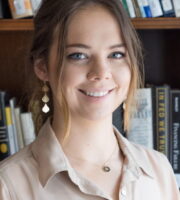
UPDATED
Heterodox Academy report shows nearly 80 percent of students are hesitant to share views on issues like abortion
Many students are uncomfortable sharing their views on abortion and the Israel-Hamas conflict, a survey from Heterodox Academy shows.
The Heterodox Academy released its Campus Expression Survey, revealing that most college students are hesitant to share their views on controversial topics in academic settings.
The topics it surveyed include gender roles, sexual orientation, race, abortion, politics, religion, COVID-19, free speech, trans identity, and the Israeli-Palestinian conflict.
Heterodox Academy provided further insights into what the results mean for higher ed.
When asked if there are any crosstab breakdowns available for liberal and conservative students, Research Director Alex Arnold told The Fix in an email statement that the academy is working to provide that information.
“We have a forthcoming research brief that examines how identifying as liberal or conservative, to varying degrees, affects students’ reluctance to discuss a number of controversial topics in the classroom,” Arnold stated.
He also stated that the Heterodox Academy has “another forthcoming research brief that examines what students say makes them reluctant to discuss controversial topics in the classroom.”
The Fix also asked if the Academy has seen any universities reverse these trends or positively support free expression in the classroom.
“The Campus Expression Survey isn’t designed to measure trends at the level of individual colleges or universities,” Arnold stated, “and so it’s not able to detect movement in trends of student reluctance to discuss controversial topics.”
The American Association of University Professors also responded to questions from The Fix about the implications of the survey via email.
Spokesperson Kelly Benjamin told The Fix, “The AAUP has not had an opportunity to review this report. We understand one of the goals of the Heterodox Academy, run by John Tomasi, former head of the Koch funded Political Theory Project at Brown, is to push the narrative that schools are hostile to conservative views.”
“In general, we feel that the fear that the free exchange of ideas does not occur on campuses has been grossly exaggerated,” he stated.
When asked about ways to encourage open debate, Benjamin suggested increased “funding for higher education so that a larger proportion of the faculty might be offered the prospect of tenure, which protects a faculty member’s right to free expression.”
MORE: ‘Where is the university going?’: Heterodox Academy conference tackles challenges facing higher ed
“As it is, with nearly three-fourths of all US faculty on short-term contingent contracts, often subject to arbitrary nonrenewal, those with controversial views, be they liberal or conservative, may find themselves increasingly vulnerable to political or ideological pressure, including from legislation,” he stated.
Benjamin went on to discuss the importance of academic freedom and the need to shield faculty members from external political pressures.
“The idea that the teachings and beliefs of the faculty must somehow reflect the prevalence of political or religious viewpoints among the citizenry fails to recognize that the whole point of academic freedom is to insulate professional judgment from political control,” he stated.
According to the Heterodox Academy report published in April, nearly 80 percent of respondents “reported being at least somewhat reluctant to discuss, ask questions about, or share their ideas on at least one of the controversial topics asked about on the [Campus Expression Survey].”
Further, the number of students who indicated they felt at least some hesitation to discuss certain topics was up to three times higher when it came to the most controversial issues, compared to more typical classroom subjects.
The survey also shows that students’ class standing does not seem to play a role in their willingness to engage in discussions about controversial issues.
Editor’s note: Claire Anderson helped with this article.
MORE: Most college students say they support free speech but also favor restrictions: survey
IMAGE: Gorodenkoff/Shutterstock
Like The College Fix on Facebook / Follow us on Twitter






Please join the conversation about our stories on Facebook, Twitter, Instagram, Reddit, MeWe, Rumble, Gab, Minds and Gettr.